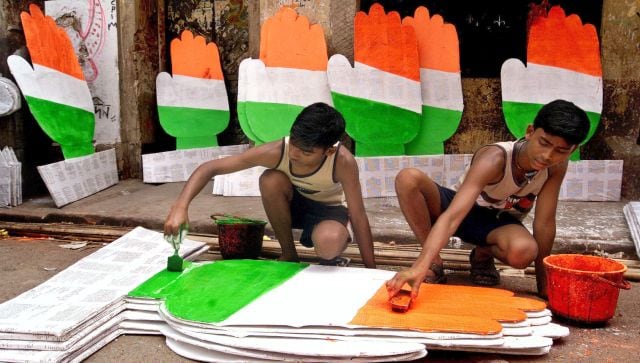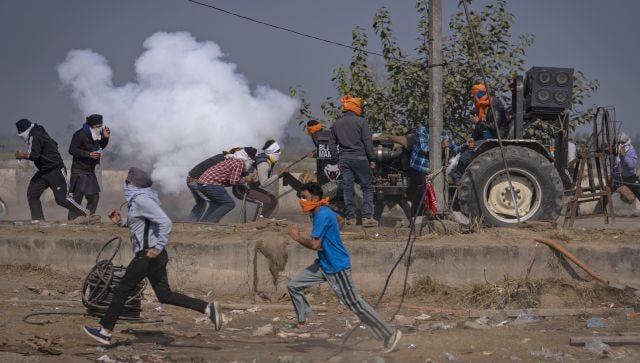How political parties benefited from ‘unconstitutional’ electoral bonds

Almost all political parties have benefitted from electoral bonds. The Congress received Rs 952 crore since the scheme was introduced in 2018. Reuters
It has been a challenging week for the Indian government. Farmers are back on the street, continuing their march to Delhi. There have been three rounds of talks between farmer leaders and Union ministers but they have not reached a consensus. With elections coming, a protest in the national capital could be worrisome.
Farmers are not the only concern. In a landmark verdict, the Supreme Court struck down electoral bonds, calling them unconstitutional. This is likely to impact political parties, which have received donations worth Rs 16,518 crore since the scheme was introduced. So what happens next? We have been tracking the story closely.
The good news for the week was the return of the Indian Navy veterans from Qatar, who were on a death sentence on espionage charges. It was a diplomatic win for New Delhi.
Related Articles
All this and more in our weekly roundup of explainers on the big news stories that grabbed headlines in the country.
1. “Delhi Chalo”. That is the call farmer leaders are giving to their counterparts. The stir has entered its sixth day on Saturday. Security personnel are doing everything they can to disperse farmers at the Punjab-Haryana Shambu border – using teargas shells, drones, barricades and more. However, the farmers are not in the mood to back down. There have been three rounds of negotiations with Union ministers Piyush Goyal, Arjun Munda, and Nityanand Rai with scant progress. But why are the farmers back on the streets again? What are their key demands? We explain.
2. The farmers’ protests come just months ahead of the 2024 general elections. It is not good optics. The farmers come from Punjab, Haryana, and Uttar Pradesh – three important states in the Hindi heartland. The stir poses a big challenge for Narendra Modi, who is eyeing a third straight term. But will this benefit the Opposition INDIA bloc? It is unlikely. In this piece, we explain how the agitation could impact the elections.

3. This week, the Supreme Court delivered a landmark verdict. It struck down the Centre’s electoral bond scheme, stating it is unconstitutional and arbitrary. But what are electoral bonds and why are they so contentious? We explain.
In another article, we help you understand the apex court’s big ruling. The decision was taken by a five-judge Constitution bench, headed by Chief Justice DY Chandrachud. The court stated that electoral bonds violate the Right to Information.
It remains to be seen how this verdict will affect political parties. However, since being introduced in 2018, political parties have received donations worth Rs 16,518 crore from electoral bonds. Of this, how much did the BJP earn? What about the Congress and other political parties? We take a look.
4. There have been some setbacks, but a big win for New Delhi was the release of Indian Navy veterans from Qatar. They were sentenced to death on espionage charges.
Arrested in the middle of the night on 30 August 2022, they spent more than a year and a half in prison. The Ministry of External Affairs was attempting to secure their release through diplomatic channels and the death sentence on 26 October 2023 came as a shock.
However, New Delhi did not give up. External Affairs Minister S Jaishankar was on top of things. It is said that Prime Minister Narendra Modi’s meeting with the Qatar ruler last December helped make further progress in the case. We take a look at how India pulled off this move.

5. The Indian Navy has been on a path to shed its colonial past. In December, it unveiled new epaulettes, reflecting the legacy of Chhatrapati Shivaji Maharaj. Now it has unveiled kurta-pajamas for its personnel. Officers and sailors will be able to wear ethnic clothing in naval messes with some caveats.
6. Our last story comes from Maharashtra and it’s the one that is expected to break hearts. Earlier in the week, a video of two staffers at a pet clinic in Thane punching and kicking a dog went viral. It sparked outrage and rightly so. Even Chief Minister Eknath Shinde took notice.
A shocking video has gone viral on social media platforms showing a man thrashing a pet dog mercilessly in #Thane district of #Maharashtra. The incident reportedly took place at a pet clinic on #GBRoad in the city. Two people have been arrested in connection with the case.
In… pic.twitter.com/nRmDsmQkCI
— Hate Detector 🔍 (@HateDetectors) February 14, 2024
Cruelty against animals is not that uncommon. The Federation of Indian Animal Protection Organisations (FIAPO) in a 2023 report wrote that there have been 20,000 intentional and brutal crimes against animals in the last 10 years in the country.
The numbers are disheartening and so are the laws. In this explainer, we take a look at the laws and how there have been growing calls to revamp them.
That’s all from India this week. Hope our explainers give you some food for thought. If you want to understand the news better, you can come back for more.

Atul Tiwari is a seasoned journalist at Mumbai Times, specializing in city news, culture, and human-interest stories. With a knack for uncovering compelling narratives, Atul brings Mumbai’s vibrant spirit to life through his writing.







